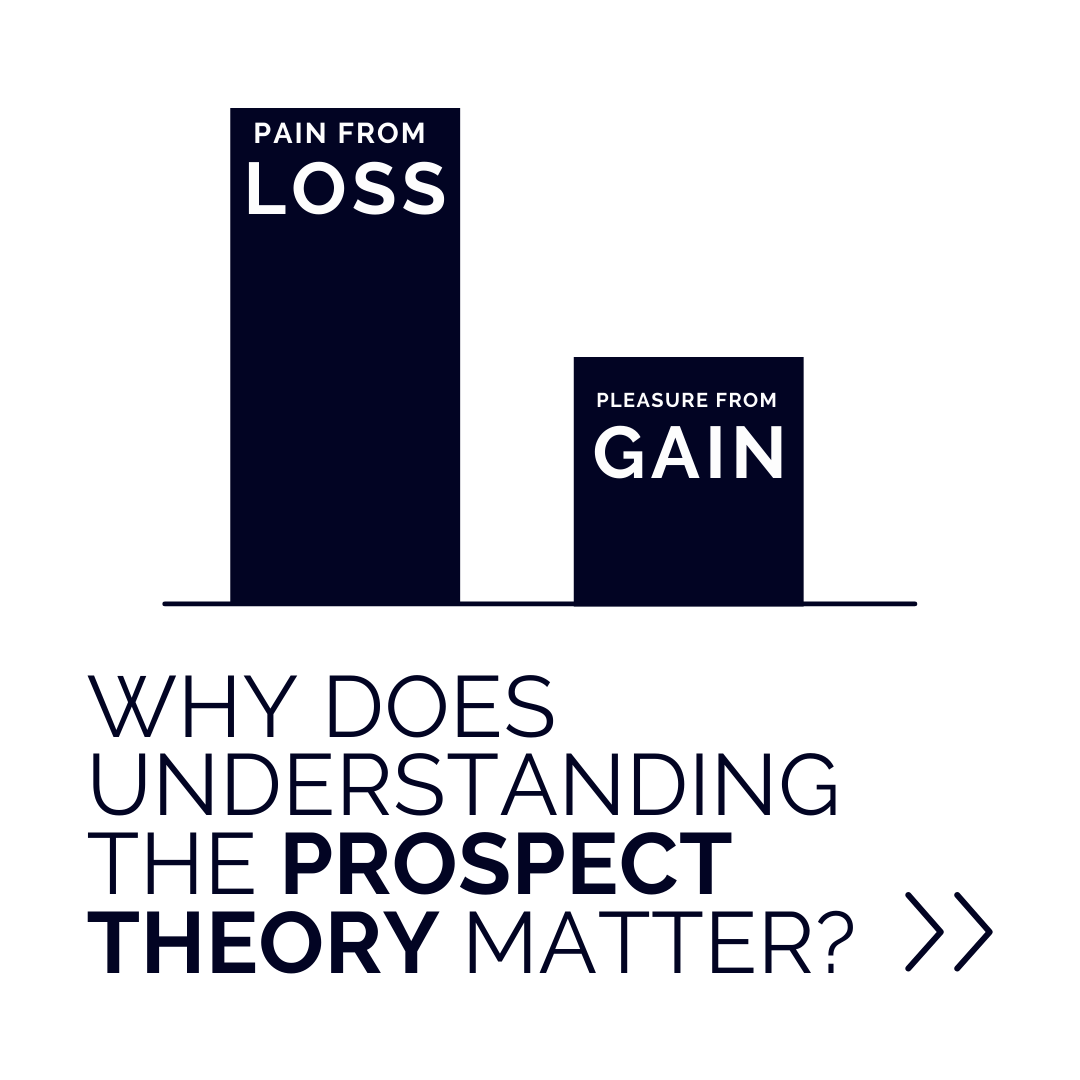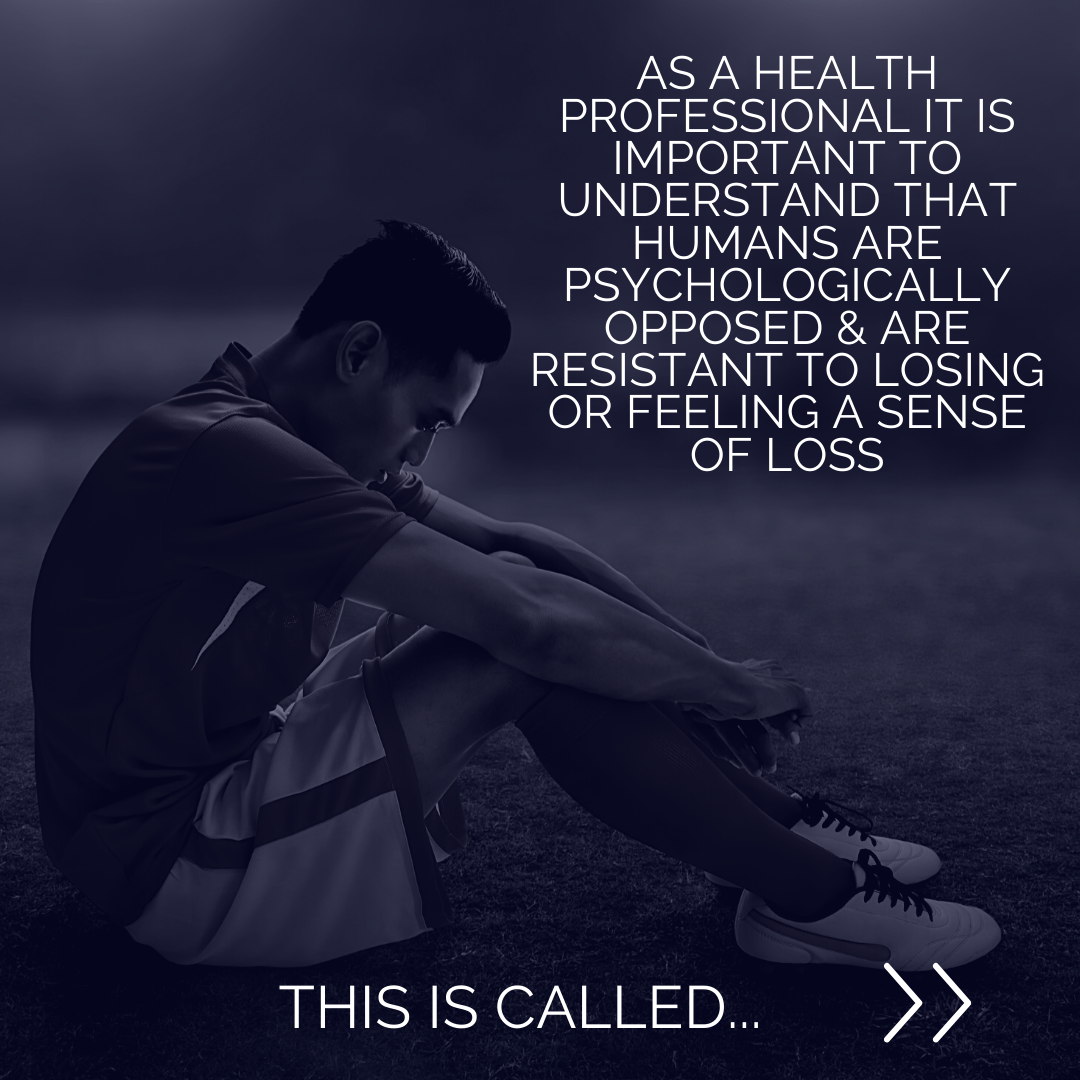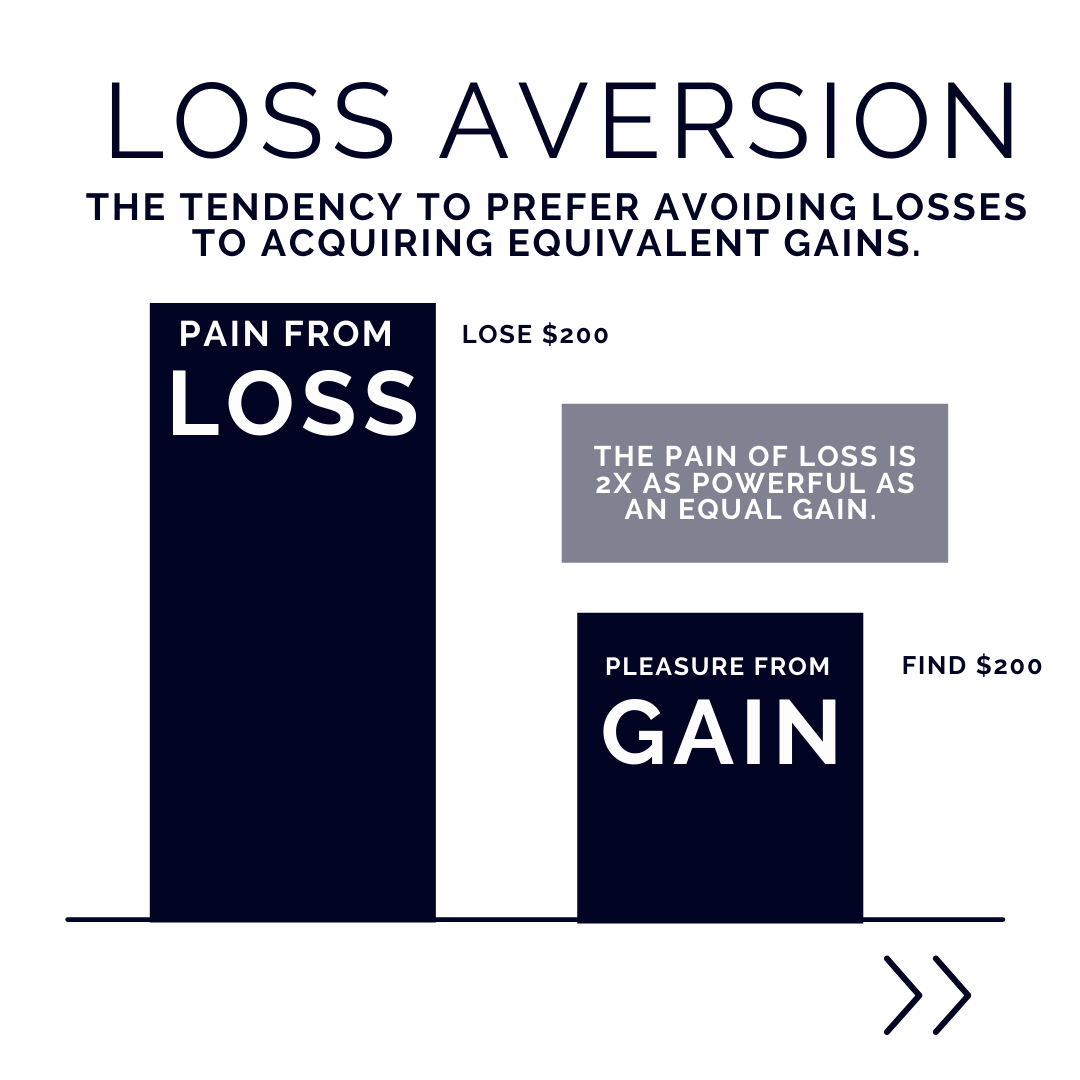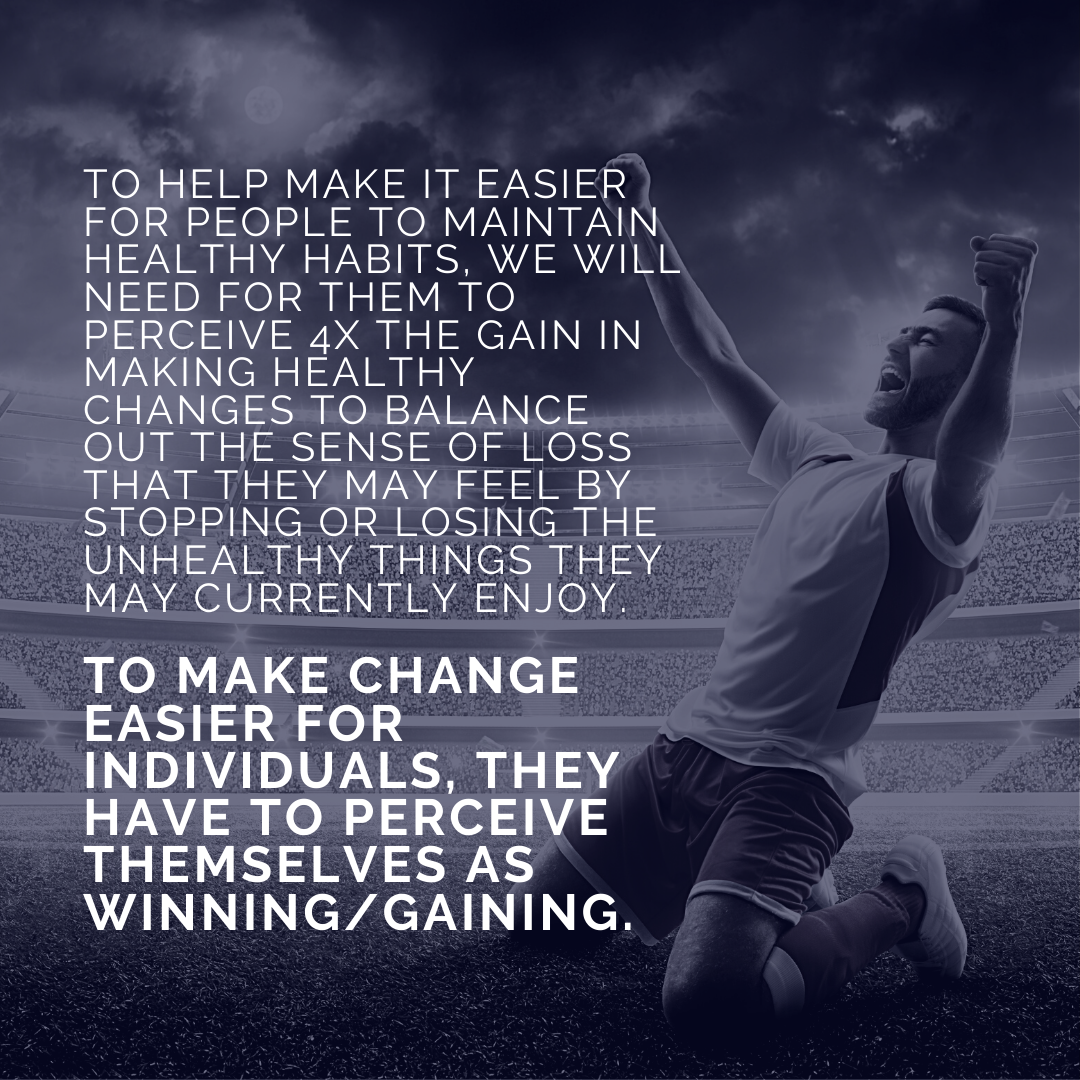REFLECT ON YOUR FEELINGS ABOUT LOSS




HOW DO YOU APPROACH HEALTH BEHAVIOR CHANGES? DO YOU FRAME THEM AS GAINS OR LOSSES?
HOW TO WE FLIP THIS PERCEPTION ON ITS HEAD?
As health professionals our role is to get people to make healthier decisions.
Most people perceive being asked to “stop enjoyable unhealthy behaviors” as a LOSS.
How do we navigate loss aversion as an automatic response to many healthy changes?
Individuals have been trained through our dieting culture to anticipate any suggested healthy changes as someone asking them to lose their favorite foods/beverages or other enjoyable habits.
There is an instinct to resist healthy behaviors even though both types of behaviors: Starting good healthy behaviors & stopping unhealthy behaviors are both positive adaptations for our health.
SHIFT THE FOCUS: As health professionals we can apply the understanding of loss aversion & create solutions & messaging for our clients that focus more on gaining the good rather than just honing in on stopping the bad. Take their focus off loss & onto all that they are gaining from the positive changes.
REFLECT ON HOW YOU RESPOND TO THE TREAT OF A LoSS
What are you most afraid of losing?
When someone threatens to take away one of your favorite things, what emotions do you feel?
Suppose someone told you that you could no longer eat your favorite food (ice cream, cookies, chips, or possible spinach)
What would be your response?
What visceral feelings would you have?
What would be the automatic emotion that you feel?
What justifications would you give to want to keep your favorite food?
How long would it take you to “cheat” and sneak that food?
It is really important to self-reflect and really be curious about how you would respond to the requests and “perceived demands” of society that are asked of us to be deemed healthy. How do we make sure that we consider the wellbeing of the mind and the body in our goal to help people make healthy nutrition and exercise changes.









